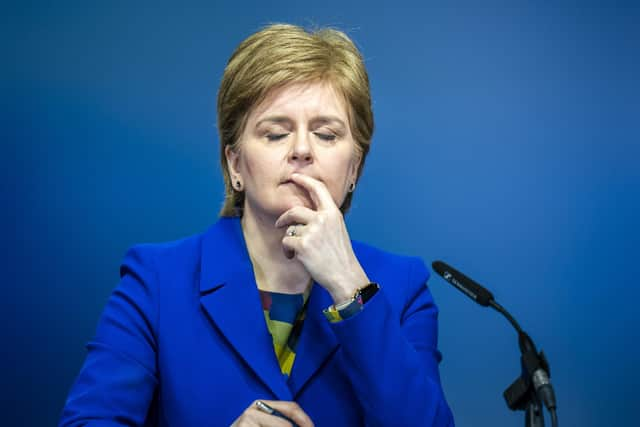Nicola Sturgeon to resign in hastily-arranged press conference, BBC reports
and live on Freeview channel 276
The First Minister will speak at a hastily-arranged press conference from her residence at Bute House in Edinburgh at 11am. It is not yet clear if she will stand down immediately, or continue in the role until a new SNP leader is elected. BBC chief political correspondent Nick Eardley reported a source close to Ms Sturgeon saying: “She’s had enough.”
Ms Sturgeon will leave office as the longest serving and first female First Minister since the creation of the Scottish Parliament, a time which saw her lead the SNP to repeated election victories at UK, Scottish and local level. The First Minister, however, has been mired in controversy in recent months as her Government sought to push through gender reforms, only for them to be blocked by the UK Government.
Advertisement
Hide AdAdvertisement
Hide AdAnd recent weeks have seen her forced to deal with the housing of transgender prisoners in women’s facilities. Rising to power unopposed after the ill-fated independence referendum in 2014, Nicola Sturgeon took over from Alex Salmond, the mentor with whom she would come into conflict in the years to come over the handling of sexual harassment allegations made against him.


But the First Minister stands down without realising her key political mission – independence for Scotland. Her party will meet next month to discuss the holding of treating the next UK election as a “de facto referendum”, with more than 50% of the vote being considered a mandate to begin negotiations for Scotland to become an independent country.